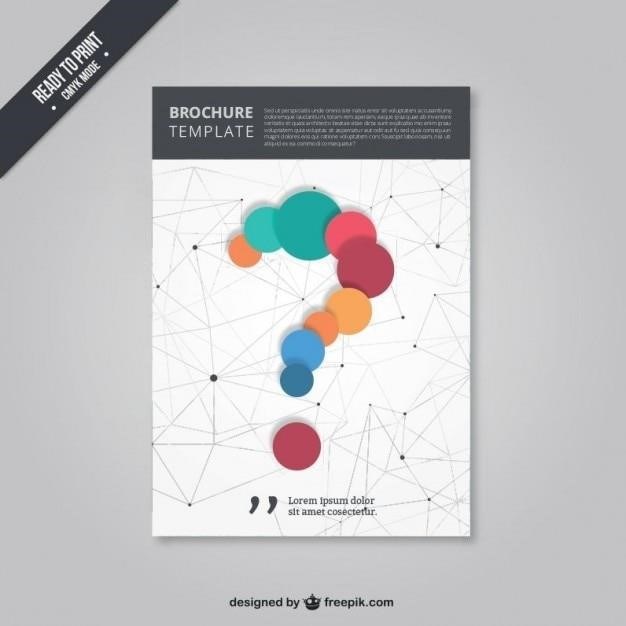Abductive Reasoning in Project Management
This section explores the application of abductive reasoning within the framework of the PMBOK Guide 7th Edition‚ highlighting its role in problem-solving‚ decision-making‚ and overall project success. The PMBOK Guide’s iterative approach naturally complements abductive reasoning’s iterative nature‚ fostering improved hypothesis generation and enhanced problem-solving capabilities. This integration leads to faster‚ more effective decision-making throughout the project lifecycle.
Defining Abductive Reasoning
Abductive reasoning‚ unlike deductive or inductive methods‚ starts with an observation and seeks the simplest and most likely explanation. It’s a process of inference to the best explanation‚ where the conclusion isn’t guaranteed to be true but is the most plausible given the available evidence. In essence‚ it’s a form of “educated guesswork” based on incomplete information‚ aiming to find the most likely hypothesis that accounts for the observed facts. This contrasts with deduction‚ which moves from general principles to specific conclusions‚ and induction‚ which generalizes from specific observations to broader principles. Abductive reasoning is particularly useful when dealing with uncertainty and incomplete data‚ situations frequently encountered in project management. The process involves identifying surprising observations‚ generating potential explanations (hypotheses)‚ evaluating these hypotheses against available data and context‚ and selecting the most plausible explanation as a working hypothesis. This iterative process allows for refinement and adjustment as new information emerges during a project.
Abductive Reasoning vs. Deductive and Inductive Reasoning
Deductive reasoning‚ a top-down approach‚ starts with general principles and derives specific conclusions. If the premises are true‚ the conclusion must also be true. Inductive reasoning‚ conversely‚ is a bottom-up approach‚ moving from specific observations to broader generalizations. The conclusion is probable but not guaranteed. Abductive reasoning differs significantly; it begins with an observation and seeks the simplest and most likely explanation. It’s a process of inference to the best explanation‚ where the conclusion is the most plausible hypothesis given the available data. Unlike deduction‚ the conclusion isn’t guaranteed; unlike induction‚ it doesn’t aim to create a general rule; Instead‚ abduction focuses on generating plausible explanations for specific situations. In project management‚ where information is often incomplete or uncertain‚ abductive reasoning provides a valuable tool for hypothesis generation and problem-solving‚ complementing the strengths of deductive and inductive approaches. Its iterative nature allows for the continuous refinement of explanations as new information becomes available.
Weaknesses of Deductive and Inductive Approaches Addressed by Abduction
Deductive reasoning‚ while powerful when premises are certain‚ struggles with incomplete information‚ a common scenario in project management. Its reliance on established truths limits its ability to generate new hypotheses or explanations in ambiguous situations. Inductive reasoning‚ while adept at identifying patterns‚ can lead to overgeneralizations or flawed conclusions if the sample data is insufficient or biased. It often lacks the explanatory power needed to understand the underlying causes of observed phenomena. Abductive reasoning addresses these weaknesses by embracing uncertainty and incomplete data. It’s particularly valuable when dealing with complex problems with multiple potential causes. By generating multiple plausible hypotheses and iteratively refining them based on new evidence‚ abductive reasoning enhances the robustness of decision-making and problem-solving in dynamic project environments. It allows for creative problem-solving and a more flexible approach to navigating uncertainties inherent in project management.

Abductive Reasoning and the PMBOK Guide 7th Edition
This section explores how abductive reasoning aligns with and enhances the project management methodologies outlined in the PMBOK Guide 7th Edition. Its iterative nature complements the guide’s emphasis on adaptive project management practices.
Abductive Reasoning in Problem Solving
In project management‚ problems rarely present themselves with neatly defined causes and solutions. Instead‚ they often manifest as unexpected deviations from the plan‚ requiring a flexible and adaptable approach to diagnosis and resolution. Abductive reasoning‚ a form of inference that begins with an observation and seeks the simplest and most likely explanation‚ proves invaluable in these situations. Unlike deductive reasoning‚ which starts with a general principle and moves to a specific conclusion‚ or inductive reasoning‚ which generalizes from specific observations‚ abduction allows project managers to formulate hypotheses based on incomplete or uncertain information. This is particularly crucial when dealing with complex‚ multifaceted projects where a single‚ easily identifiable cause is unlikely. The PMBOK Guide 7th Edition‚ while not explicitly mentioning “abductive reasoning‚” implicitly encourages this type of thinking through its emphasis on risk management‚ change management‚ and iterative development. By embracing the ability to form plausible explanations‚ project managers can more effectively identify root causes‚ develop targeted solutions‚ and prevent similar problems in the future. The iterative nature of abductive reasoning fits well with the iterative and adaptive project management approaches encouraged in the PMBOK 7th Edition. This allows for continuous learning and improvement throughout the project.
Application of Abductive Reasoning in Decision-Making
Project management is rife with decisions‚ often made under pressure and with incomplete information. The PMBOK Guide 7th Edition emphasizes the importance of informed decision-making‚ but rarely specifies the type of reasoning most effective in such situations. Abductive reasoning offers a powerful framework for navigating these complexities. When faced with multiple potential courses of action‚ a project manager can utilize abductive reasoning to evaluate each option’s plausibility based on available evidence and likely consequences. This contrasts with deductive decision-making‚ which requires complete knowledge of all variables‚ a rarity in real-world project environments. Instead of seeking absolute certainty‚ abductive reasoning allows for informed choices based on the best available explanation. This approach is particularly useful when evaluating risks‚ allocating resources‚ or resolving conflicts where definitive answers are unavailable. The iterative nature of abductive reasoning—generating hypotheses‚ testing them‚ and refining them based on feedback—is well-suited to the dynamic and ever-changing nature of most projects; By embracing this approach‚ project managers can make more timely and effective decisions‚ even in the face of uncertainty‚ enhancing project success.

Benefits of Abductive Reasoning in Project Management
Leveraging abductive reasoning in project management offers significant advantages. It fosters improved hypothesis generation‚ leading to more creative problem-solving and faster‚ more effective decision-making‚ ultimately enhancing project outcomes and overall success.
Improved Hypothesis Generation
Abductive reasoning significantly enhances hypothesis generation within project management. Unlike deductive or inductive approaches‚ abduction starts with an observation—a problem or unexpected event—and then generates multiple plausible explanations. This “best guess” approach‚ central to abductive reasoning‚ allows project managers to explore a wider range of potential solutions compared to methods that rely on pre-existing frameworks or exhaustive data analysis. The PMBOK Guide’s iterative nature complements this process; each hypothesis can be tested‚ refined‚ and iteratively improved upon‚ generating a more comprehensive understanding of the problem and leading to more robust and effective solutions. By embracing this open-ended approach‚ project managers can escape the constraints of traditional‚ linear thinking and generate innovative solutions that might otherwise be overlooked. The ability to quickly formulate multiple hypotheses is a key advantage‚ especially in dynamic project environments where rapid adaptation is crucial. This enhanced creativity and flexibility lead to more effective strategies and significantly better outcomes in complex projects. This contrasts sharply with deductive and inductive approaches‚ which can sometimes be too rigid or data-dependent for the unpredictable nature of many projects.
Enhanced Problem-Solving Capabilities
Integrating abductive reasoning into project management significantly enhances problem-solving capabilities. The PMBOK Guide 7th Edition emphasizes iterative processes‚ aligning perfectly with abduction’s iterative nature. When faced with a project challenge‚ abductive reasoning encourages the generation of multiple hypotheses‚ moving beyond a single‚ potentially flawed‚ solution. This process involves a cyclical evaluation of potential causes‚ leading to a more comprehensive understanding of the root problem. Unlike deductive or inductive approaches that may become fixated on a single line of inquiry‚ abductive reasoning allows for exploration of diverse perspectives and potential solutions. This flexibility is particularly beneficial in complex projects where multiple factors interact. The iterative refinement of hypotheses through testing and feedback ensures that the chosen solution addresses the core issue effectively. Furthermore‚ abductive reasoning fosters creativity by encouraging out-of-the-box thinking‚ generating solutions that might not be apparent using traditional problem-solving methods. This enhanced problem-solving approach leads to better decision-making‚ reducing risks and improving the overall project outcome. The PMBOK Guide’s focus on risk management further benefits from the proactive and exploratory nature of abductive reasoning.
Faster Decision-Making
In project management‚ timely decisions are crucial for success. Abductive reasoning‚ with its iterative hypothesis generation and testing‚ can significantly accelerate the decision-making process. The PMBOK Guide 7th Edition advocates for iterative project management‚ naturally complementing the iterative nature of abductive reasoning. By quickly forming and evaluating plausible explanations for observed project issues‚ project managers can avoid lengthy investigations and analysis paralysis. The ability to generate multiple hypotheses simultaneously allows for parallel exploration of potential solutions‚ shortening the time spent on individual options. This approach contrasts with deductive and inductive methods‚ which often require a sequential‚ more time-consuming approach. Furthermore‚ the acceptance of uncertainty inherent in abductive reasoning allows for decisions to be made with incomplete information‚ provided the decision remains justifiable and aligned with project goals. This reduces the need for absolute certainty before acting‚ accelerating the decision-making process without compromising the quality of decisions. While some risks remain‚ using abductive reasoning enables timely interventions that mitigate potential problems‚ resulting in a more efficient and effective project timeline.
Case Studies⁚ Abductive Reasoning in Action
This section presents real-world examples demonstrating the practical application of abductive reasoning in project management‚ showcasing its effectiveness in problem-solving and decision-making within the context of the PMBOK Guide 7th Edition.
Real-World Examples in Project Management
Consider a software development project experiencing unexpected delays. Instead of solely focusing on scheduled tasks (deductive)‚ or simply observing past trends (inductive)‚ a project manager employing abductive reasoning might hypothesize that insufficient communication between teams is the root cause. This hypothesis‚ based on incomplete information (e.g.‚ anecdotal evidence of friction)‚ is then tested through targeted interviews and process analysis. The PMBOK Guide 7th Edition supports this approach by emphasizing risk management and proactive problem-solving. Another scenario involves a construction project facing budget overruns. Abductive reasoning encourages investigating less obvious factors‚ perhaps uncovering unforeseen geological challenges or supplier unreliability as the underlying issues. These factors might not be explicitly listed in initial project plans‚ yet their impact becomes apparent through abductive inquiry. By systematically evaluating these hypotheses and gathering further data‚ the project manager can refine their understanding‚ make informed decisions‚ and adapt strategies to mitigate risks and stay on track. The iterative nature of abductive reasoning aligns seamlessly with the PMBOK Guide’s emphasis on continuous monitoring and control.
Medical Diagnosis as an Analogy
The process of medical diagnosis offers a compelling analogy for understanding abductive reasoning in project management. A doctor faced with a patient exhibiting specific symptoms doesn’t directly deduce the illness from a textbook; nor does the doctor simply rely on past experience (inductive). Instead‚ the physician formulates a hypothesis about the most likely cause based on available evidence—a classic example of abduction. This hypothesis‚ though not definitively proven‚ guides further investigation through tests and examinations. Similarly‚ a project manager encountering unexpected project challenges (e.g.‚ cost overruns‚ schedule delays) can use abductive reasoning to generate potential explanations. This might involve considering factors beyond the initial project scope‚ such as unforeseen external dependencies or team skill gaps. The project manager‚ like the doctor‚ then tests their hypotheses through data gathering and analysis (e.g.‚ stakeholder interviews‚ performance reports). The iterative nature of both processes—hypothesis generation‚ testing‚ refinement—highlights the parallel between medical diagnosis and effective project management using abductive reasoning. Both emphasize the importance of incomplete information and the continuous refinement of understanding through investigation and feedback.

No Responses